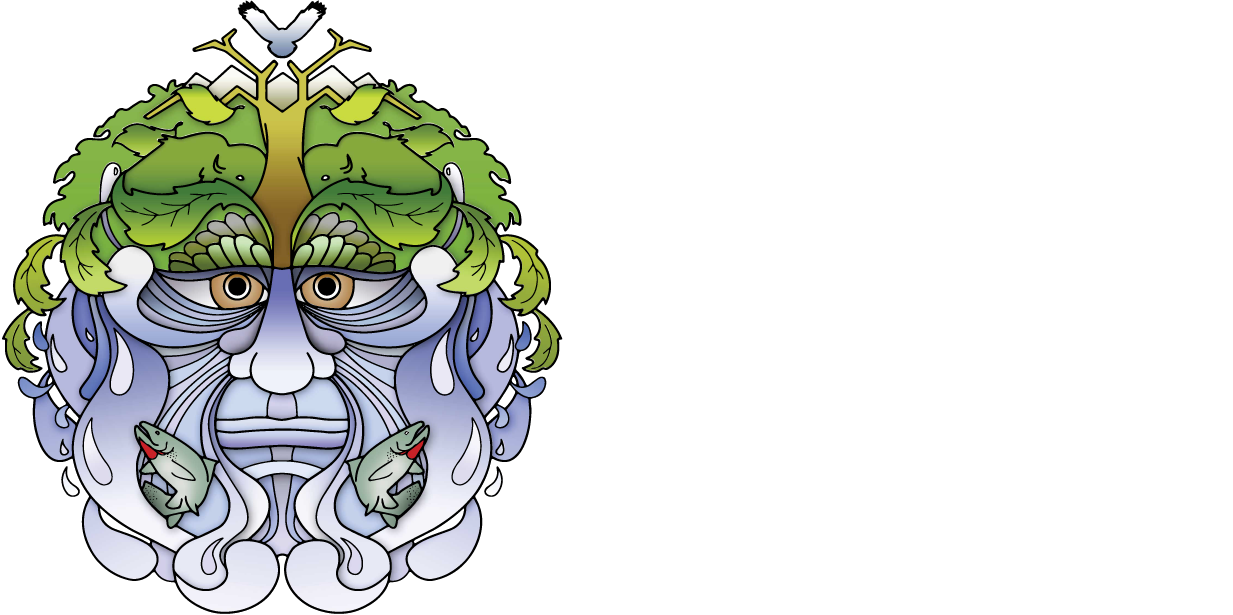(Editor's note: Our watershed is a complex place, with many competing —and sometimes contradictory—interests. How can we best create a safe, collaborative space where all voices can be heard and valued?)
This was a graphic I made up as I was thinking about the challenge we have, as the OWC, in putting out our message.
So if there was ONE KEY THING we had to say, what would it be?
Surely that's not so difficult. So I write in "Oldman, Watershed, Council, water, management, health". Our mandate is to provide advice to decision-makers. Better add: "WPAC, advisory, Alberta". The Oldman existed before the provincial government's 'Water For Life' strategy but got subsumed into it as a Watershed Planning and Advisory Council - one of 11 in Alberta, each for a different watershed.
That means we need to come up with lots of evidence to back up our advice. Add: "publications, reports, science, facts, protecting, planning and SOW". The State of the Watershed (SOW) publication is an intense piece of work, evaluating 4 sub-basins in the watershed plus the main stem of the Oldman River.
Oops. Better add the names of all the rivers in the watershed. "Oldman, Little Bow, Willow, Castle, Crowsnest, Belly, St. Mary's..." throw in "Waterton" and "Chain Lakes" too, and better add the "Oldman Dam".
Well, the dam isn't the only thing that has altered the course of the rivers. so I add: "irrigation, canals, flood, cities". I think about all the communities that are served by these complex systems that I have yet to quite comprehend. All the little dust bowls that are now bread baskets. I add the names of the big communities: "Lethbridge, Coaldale, Coalhurst, Taber, Vauxhall, Vulcan, Cardston, Magrath, Pincher Creek, Crowsnest Pass, Claresholm, Stavely, Nanton, High River, Picture Butte, Nobleford" ... miss anybody?
Well, we all know what this irrigation water is helping to do: "farmers, ranchers, agriculture, livestock, food, drink". It makes me think about the huge difference between city life that I know and love and the country life that I'm now learning all about. Add: "urban, rural, immigration".
There must be plenty of people like me who move to southern Alberta knowing nothing about it. Nothing about the "plants, animals, vegetation, forests, mountains, prairie, grassland" ... gotta add "rough fescue". It makes me feel important if I say it. It just has a nice ring to it. I didn't know it meant native GRASS, a now at-risk ecosystem. There's another new vocabulary I learned that I love to say: "invasive species". Makes me think of men from Mars and stuff. I don't even know what's a weed in my own backyard never mind what's out there in the watershed. But I'm learning. Better add: "education".
Oh! "children". Kids gotta learn.
But what about the adults? They go out there and enjoy all kinds of things like camping, hunting, fishing, recreation, and OHVs. That gives me pause for thought. Those OHVs. Never liked 'em. Noisy as all-get-out. But I'm learning how people who work the land need them and use them to take care of it, and I'm learning that there are a lot of responsible riders that do a lot of good in the watershed, building bridges and maintaining trails over sensitive areas ... Ah yes: "habitat, consideration, responsible, headwaters".
Headwaters, headwaters. We're all about them at the OWC. It's our main priority at this point. I write: "water quality, water quantity, future generations". There's a lot of activity up in those headwaters. A lot of it creates effects that are not immediately measurable or noticeable. I add: "legislation, enforcement, linear features, landscape simulator, fragmentation, habitat, fish".
I remember hearing from a Peigan friend about how the Creator, Naapi, taught people how to hunt and fish. I add: "Peigan, Kainai, Blood, Blackfeet, First Nations, Naapi". It is impossible to talk about the Oldman-this and the Oldman-that all the time without acknowledging that the Oldman River is named so because it is the river beside which the Oldman (Naapi) walked. We could all use more Naapi stories, I think. They teach us that the light of creation is in all things.
Suddenly, I have it. THE ONE KEY THING.
"We are ALL downstream".
- Anna Garleff, OWC Communications Coordinator
anna@oldmanbasin.org
587 224 3793 cell





